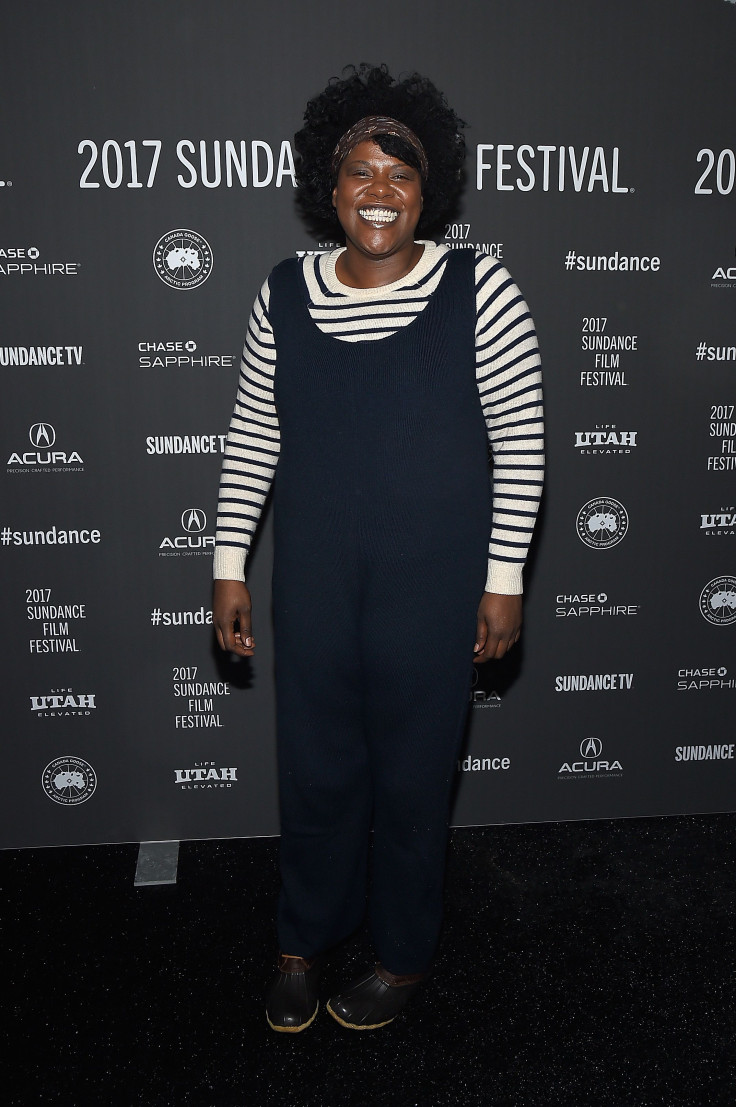‘Moonlight’ Editor Joi McMillon Weighs In On ‘Oscars So White’ Controversy And The Importance Of Telling ‘Diverse Stories’

Oscar season is officially upon us and the 2017 award show is shaping up to be a historic one. This year’s nominees include Joi McMillon — the first ever black woman to be up for best editing — and a record breaking, but still notably low, number of black actors and actresses. McMillon, the film editor nominated for her work on A24’s “Moonlight,” is still coming to terms with her part in the long overdue diversity shakeup.
During an interview with the International Business Times she said that thus far, the best part of the whole experience has been sharing it with the cast and crew of “Moonlight.” McMillon is one of six people associated with the film to be nominated for an Oscar this year. She went on to say that it was “incredible” to have been recognized by the academy, adding that each nod “Moonlight” got was “well deserved.”
“We’re all just so excited to be nominated,” McMillon told IBTimes. “I think each of us in our own different areas of this industry have been working away and trying to make the best art possible and for the Academy to say, ‘We see you, and we’re considering you to be good at what you do,’ is something that people strive for their whole career. For it to be happening to us at this time is incredible.”
“Moonlight,” a drama written and directed by Barry Jenkins, is set in a Miami neighborhood in present day. It follows one character, Chiron (Trevante Rhodes), from adolescence to adulthood, detailing the many struggles he encounters along the way — including an emotionally abusive mother (Naomie Harris), stints in juvie and betrayal of loved ones.
While fans of the film have been buzzing about it’s Oscar worthiness since it’s release on October 21, 2016, McMillon maintains that this is beyond anything she and the others who worked on “Moonlight” could have ever dreamed of. She told IBTimes that their early goals were small.
“Our initial goal was to get to Telluride [Film Festival] and make Barry proud. If we could just [do that], then we succeeded,” McMillon said. “Everything since then has just been icing on the cake.” After accomplishing those goals, it was onward and upward at a trajectory no one could have predicted.
“Moonlight” is nominated an astounding eight times in several categories, including best picture, best supporting actor and best director. While fans are crossing their fingers for wins across the board, even having been named among the nominees is major. For two years the list of Oscar hopefuls has been made up of predominately white actors, which gave way to the hashtag, “Oscars So White.” With a record breaking six black actors, actresses and directors nominated in 2017, many felt the battle was over. Others, including McMillon, recognize that there is still room for improvement.

McMillon celebrated the increased inclusivity, reminding those who remain critical that this isn’t something that can “happen over night.” She called the diverse nominations “a step in the right direction,” suggesting that there is still more work to be done if we hope to fully end the “Oscars So White” controversy.
“It’s something that we have to build towards and I feel like this is a step in the right direction,” she explained. “But if not a lot of diverse people are cast in roles then that doesn’t give them the ability to be nominated for the Oscar. It’s not something we can do for one year and then forget about.”
Additionally, McMillon told IBTimes that the issue extends beyond both the black and white communities. She called on Hollywood to take a closer look at their community and start increasing representation in all marginalized groups, reminding them that representation is important. McMillon stated that not only is this issue broader than black and white, it extends beyond the small and silver screens.
“We have to do a better job on camera and off camera to make sure we’re including everyone,” she said.
The first step in doing so, McMillion suggests, is realizing that there is an audience for diverse stories. She revealed a feeling that casting directors and those tasked with marketing movies often worry about appealing to audiences, without realizing what exactly audiences can relate to. She attributed much of the success associated with “Moonlight” to it’s ability to reach a broad audience, which includes people who may not know first hand the struggles of the film’s characters.
“I think the people who are in charge of casting and marketing feel like diverse stories are not very profitable in mainstream theaters, but one of the things ‘Moonlight’ is shining a light on is that it’s a story people want to go see. It’s breaking down barriers and showing that people are interested in diverse stories and there is a place for them and they should be told.,” she said.
Tune in to the Oscars on Feb. 26 at 7 p.m. EST on ABC and be sure to catch “Moonlight” in theaters while you can.
© Copyright IBTimes 2024. All rights reserved.






















